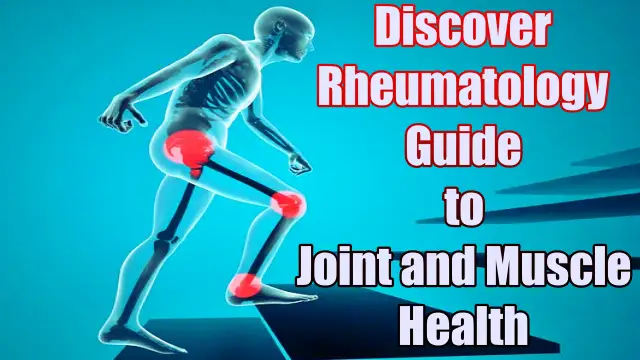Rheumatology is a vital branch of internal medicine focused on diagnosing and treating rheumatic diseases. These conditions primarily affect the muscles and joints, leading to pain and discomfort. If you’re experiencing joint pain or muscle issues, a rheumatologist can help you find relief.
What is Rheumatology?
Rheumatology deals with a variety of disorders that impact the musculoskeletal system. This includes the joints, muscles, and connective tissues. Rheumatologists are specialists trained to understand these complex conditions and provide effective treatment options.
Common Rheumatic Diseases
Several diseases fall under the umbrella of rheumatology. Here are a few of the most common:
- Rheumatoid Arthritis (RA): This is an autoimmune disorder where the body attacks its own joints, causing inflammation, pain, and stiffness. It can affect any joint but often targets the hands and feet.
- Ankylosing Spondylitis: This chronic inflammatory disease primarily affects the spine. It can lead to severe pain and stiffness, and in some cases, it may cause the vertebrae to fuse together.
- Lupus Erythematosus: Often simply called lupus, this autoimmune disease can affect multiple systems in the body, including the skin, joints, and organs. Symptoms vary widely, making it a challenging condition to diagnose.
Why See a Rheumatologist?
If you have persistent joint or muscle pain, seeing a rheumatologist is crucial. They can perform specific tests to diagnose your condition accurately. Early diagnosis can lead to better management of symptoms and improved quality of life.
Treatment Options
Rheumatologists offer various treatment options tailored to each patient’s needs. Common treatments include:
- Medications: These may include anti-inflammatory drugs, corticosteroids, and disease-modifying antirheumatic drugs (DMARDs). Each medication has its benefits and potential side effects, so it’s essential to discuss these with your doctor.
- Physical Therapy: A physical therapist can help you strengthen muscles around affected joints, improve flexibility, and reduce pain.
- Lifestyle Changes: Diet and exercise play a significant role in managing rheumatic diseases. A balanced diet rich in anti-inflammatory foods can help reduce symptoms. Regular exercise can also improve joint function and overall health.
FAQs About Rheumatology
What does a rheumatologist do?
A rheumatologist diagnoses and treats conditions affecting the joints, muscles, and connective tissues.
How do I know if I need to see a rheumatologist?
If you experience persistent joint pain, swelling, or stiffness, it’s advisable to consult a rheumatologist.
What tests do rheumatologists perform?
They may conduct blood tests, imaging studies (like X-rays or MRIs), and physical examinations to diagnose conditions.
Can rheumatic diseases be cured?
While many rheumatic diseases cannot be cured, they can be managed effectively with the right treatment.
How can I manage my symptoms at home?
Incorporating a healthy diet, regular exercise, and stress management techniques can help alleviate symptoms.
Conclusion
Rheumatology is a crucial field that addresses the needs of those suffering from joint and muscle disorders. If you suspect you have a rheumatic disease, don’t hesitate to seek help. Early intervention can lead to better outcomes and a more active, pain-free life. Remember, you don’t have to face these challenges alone—consult a rheumatologist today!

